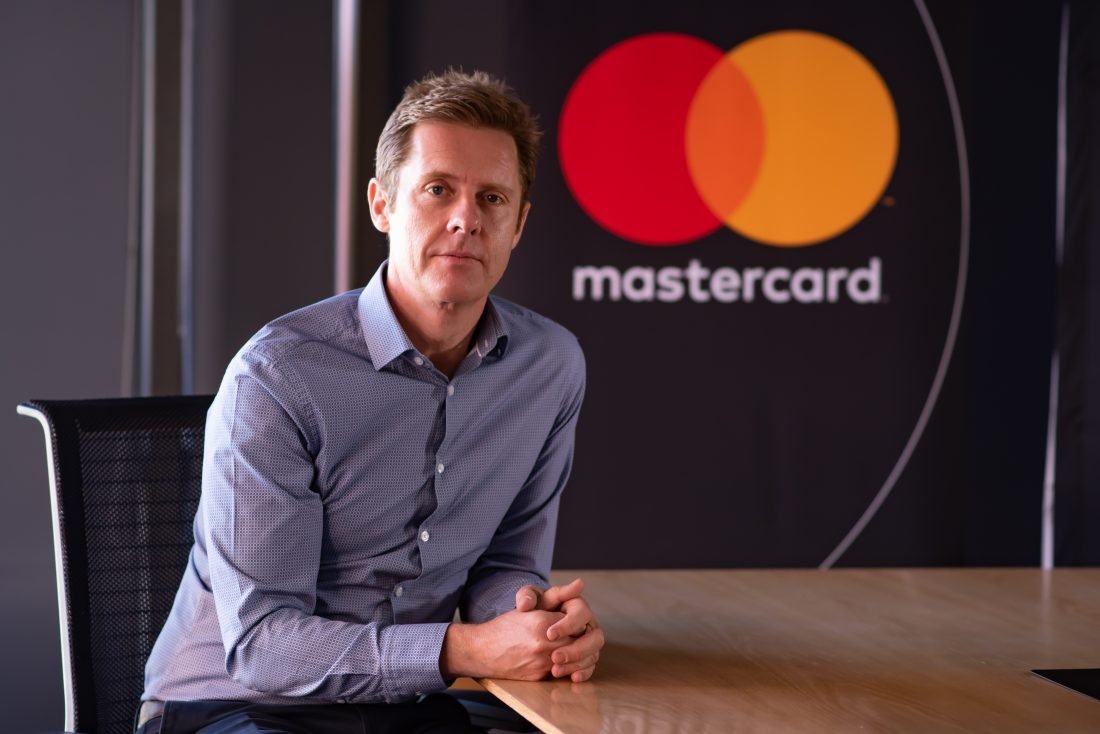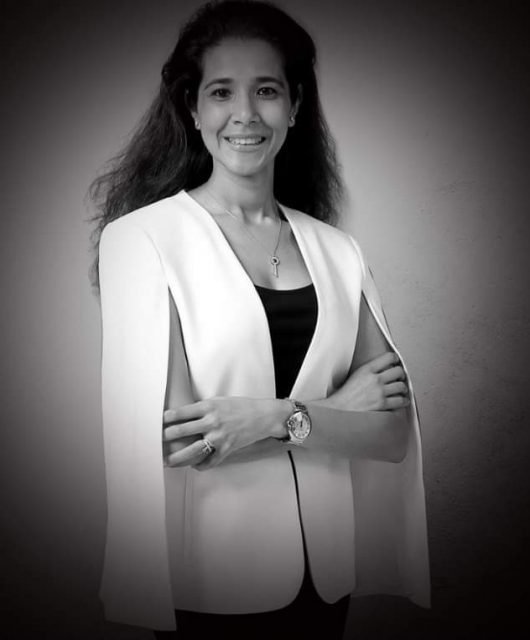By: Mark Elliott, Division President, Mastercard, Southern Africa

Cynthia, a spaza shop owner in Johannesburg opens a fintech lender’s app and authorizes them to fetch her transactions from her mobile money account, which she uses to pay her bills, her bank account into which she deposits her weekly earnings and her money transfer account, which she uses to remit money to relatives. With a full view of her cash flow, she gets approved for credit instantly and receives it into her preferred card. She also uses the app to find an affordable health insurance policy for her family, then sets a saving goal to meet the monthly premium and instructs her bank to save a certain amount every month towards the goal, which once met, auto enrolls her and helps her prepare for difficult times.
Some innovations come along and transform an entire landscape. Apple revolutionized the mobile phone and changed how we connect and communicate. Tesla has reimagined car manufacturing in a software-centred world. One technology that is promising to change how we experience money, and is set to reshape financial services is open banking.
Open banking can be the game changer for financial services in Africa, assisting financially vulnerable individuals and small businesses who traditionally have been underserved by the financial sector.
And while open banking is likely to be a game changer for Africa, could Africa also create a paradigm shift for open banking? Many of those who are financially unbanked or underserved have an existing relationship with a telco, fintech or micro finance company and so there is an opportunity for banks to benefit from “open data” or “open Telco”,. A move towards such openness – from both the bank and the other party – will be needed if we are to unleash the true potential of financial services and be fairer for the consumer.
What Is Open Banking?
Open banking is a collaborative ecosystem in which customer-consented data is shared among financial institutions, merchants and fintechs. This data is exchanged through secure Application Programming Interfaces (APIs) and gives customers control of their data and provides them with better products and services. While the open banking experience varies across the globe based on regulatory specifications, there are three common themes:
- Data Access: Banks share customer-consented data—including payment, account, product and financial information—with participants in the banking system to make customer experiences more seamless.
- Customer Authentication: Banks enhance their customer authentication rules and consent management, often across multiple industries, to be more strict and more unified.
- Transaction Initiation: Third Party Providers (TPPs) initiate payments—including card, mortgage and loan payments, as well as investment decisions and stock purchases on behalf of customers.
How will it unfold?
Regulation has led the way in the UK, EU and Australia, while the US and India have been led by market forces where the sharing of account data is an accelerant of fast and smarter innovation.
On the African continent, Nigeria has recently announced their own regulatory framework establishing principles for data sharing between banks and the fintech ecosystem, that amongst other things stipulates access, technical and information security standards. The South African Reserve Bank has started industry consultations with a view to safeguard consumer data and manage cyber security risks specific to open banking payment solutions, particularly in the e-commerce environment.
There is a vibrant fintech community across both markets, comprising of EFT providers, e-wallets, PSPs and digital merchants, who can benefit from open banking. Simultaneously banks will be concerned about data protection, dispute management, liabilities and implications on their services.
This journey will be an evolution not revolution. Adoption will take time as we are seeing in Europeand will require stakeholders from across the new ecosystem – including regulators, third parties and banks – to come together to address challenges in FOUR key areas:
- Create promising use cases with clear value for consumers and businesses while creating the right incentives (monetization/ Business model) for both banks and fintechs
- Develop a level playing field and standardised mechanisms by which banks and third-party providers (TPPs) interact
- Establish ecosystem-appropriate solutions to maximise security and minimise participants’ exposure to fraud
- Ensure rules, standards and infrastructure to manage consumer consent, safeguard consumers financial information, manage enquiries and resolve disputes
At Mastercard, we are playing a leadership role in facilitating and encouraging a safe and successful move to open banking, which will increasingly underpin workings of new digital economies. We recognise the importance of establishing consumer trust in this new ecosystem that will require cross-industry co-ordination and potentially investment.
We have also acquired a company called Finicity, a leading North American provider of real-time access to financial data and insights, that further strengthens our ability to deliver on the open banking opportunity globally..
Can banks Monetize Open Banking?
Some open banking regulations, such as those in Mexico, allow banks to charge third parties a fee to access financial data. Others, such as in the EU, currently prohibit such charges. Regardless, any charges are nominal. Where incumbent banks once ran the risk of commoditization as providers of financial infrastructure to third-party providers, open banking is now recognized as a potential source of new revenue and a basis for innovation.
Bank as a third-party provider refers to banks sourcing services from third parties to address customer lifestyle needs. Recently, Mastercard teamed up with Spot Money South Africa to launch Spot – the first open banking marketplace in South Africa. The app is a great example of how Spot Money’s customers can transact seamlessly and review tailormade financial offers such as loans, insurance, and lifestyle services from fintech partners -.
Banking as a service refers to banks distributing their financial services through third parties. Third parties can offer services on behalf of banks by providing login-by-bank solutions to allow for automated form-filling. Banks generally profit through improved customer acquisition and commissions.
Banking as a platform refers to banks opening their product suite up to third parties. Banks can create white-label offerings and provide a suite of services to fintechs to sell to customers. Banks can profit from revenue sharing but may also charge a fee to third parties in white-labeling cases.
A Game Changer? And for Africa?
In its simplest form, open banking is empowering consumers to access, use, and benefit from their financial data. The consumer may not recognise the term open banking but in time will appreciate, for example, their ability to set up smart budgeting tools that help with savings and auto switch insurance policies to get a better deal etc. from third parties. Imagine topping-up your investment in real-time because your investment provider knows you have money in your bank account? Or comparing interest rates for a small business loan without having a credit history or even applying for a cellphone contract without having to obtain stamped bank statements?
In Africa, where a large part of the population remains unbanked or underbanked, open banking has the potential to facilitate financial inclusion as it addresses access and affordability. While it is early days, the top five use cases for open banking in Africa could include:
- Small Business Finance Management: Africa is home to 50M+ small and micro businesses, many of whom have been significantly impacted by COVID-19. Open banking can enable these businesses to be paid more easily through a payment initiation service. In addition, it will be easier to retrieve cash flows and business information from banks to their suppliers, investors and P2P lenders, critical to inform a lending decision. Premium APIs can provide access to business or director/owner information and credit scores directly into a third party provider’s application to speed up commercial credit decision-making.
- Thin File Scoring/ Instant Credit/ BNPL: Credit Bureaus, while somewhat mature in South Africa, only cover part of the population and in other African markets, bureau calls tend to be expensive for thin file customers. By using the consumer’s banking transaction history such as regular rent payments, bill payments, or pay stabs, lenders can make better credit decisions for those who previously did not have access to credit. Open banking can enable alternative lenders to put in place an API-based process and decision for instant approval of transactional credit or installments at the point of checkout in either face-to-face or e-commerce environments.
- Account to Account Payment Initiation: this use case is already live today in South Africa for e-commerce albeit via Screen Scraping, which is unregulated and hence poses a number of concerns around dispute management, liability and fraud. Open APIs, consumer consent management and agreed dispute rules will make payment initiation safer.
- KYC and Account Opening: Africa has over 350 million unbanked individuals – and a particular challenge is last mile onboarding in remote locations. Enabling agency’s or fintechs to conduct account opening and eKYC on behalf of banks can unlock access and efficiency.
- Digital First Banking Experiences: Regardless of global differences, Covid-19 has had a consolidating effect worldwide. Even if digital banking—a basic tenet of open banking—wasn’t the norm in most regions before COVID-19, it is now. That’s not to discount the future of physical bank branches. As with any retailer, they provide complementary experiences in an online–offline fusion. But open banking isn’t only about smoother online banking experiences; it’s about improved financial planning for individuals struggling during the economic downturn.
Fintech and mobile banking players have already improved financial inclusion in Africa by developing affordable mobile payment and transfer solutions. By fully harnessing the potential of open banking, banks, telecommunication companies and other fintech players can further strengthen and broaden African financial markets, while providing consumers and businesses with greater choice and control.





